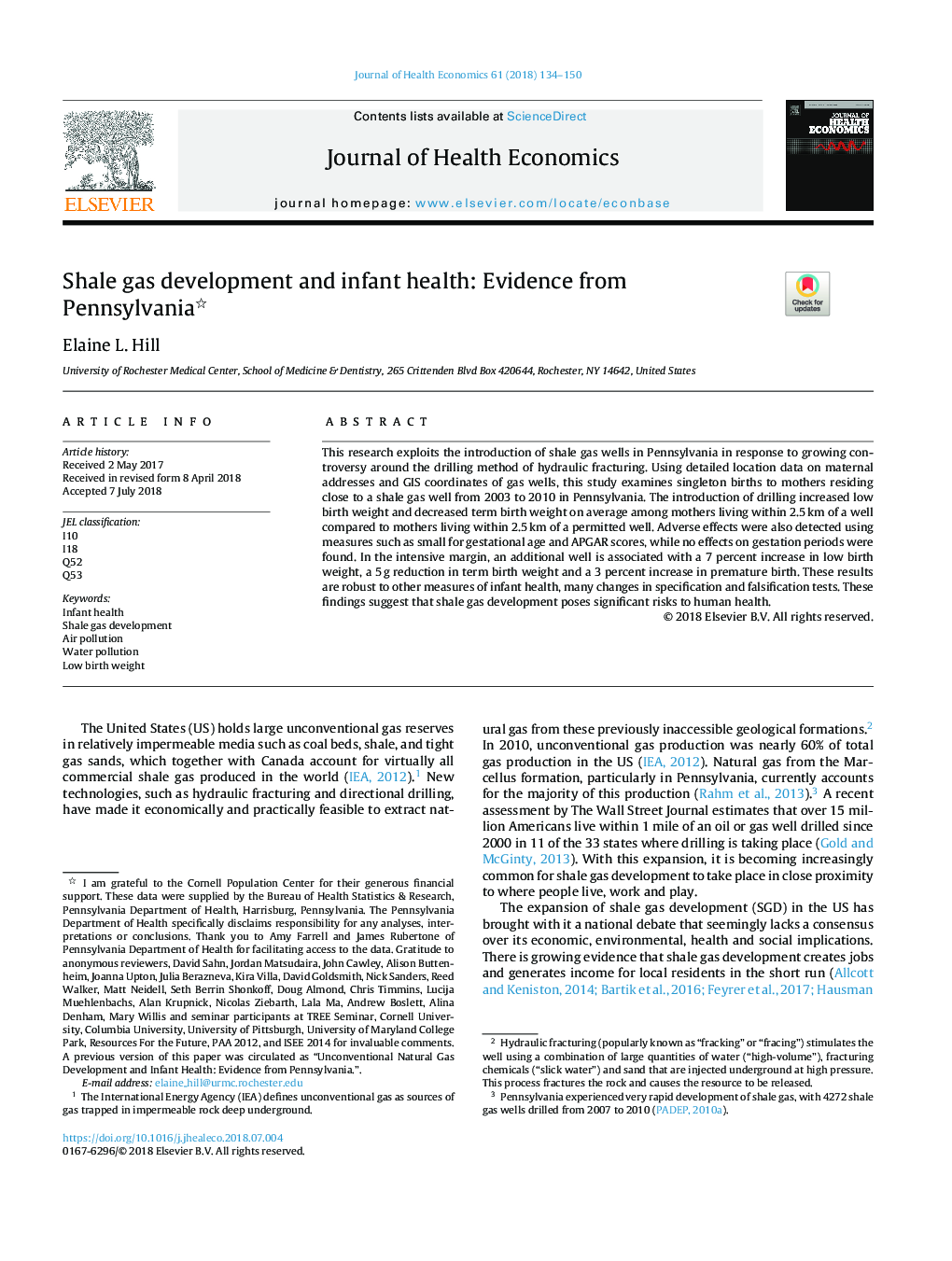| Article ID | Journal | Published Year | Pages | File Type |
|---|---|---|---|---|
| 7362661 | Journal of Health Economics | 2018 | 17 Pages |
Abstract
This research exploits the introduction of shale gas wells in Pennsylvania in response to growing controversy around the drilling method of hydraulic fracturing. Using detailed location data on maternal addresses and GIS coordinates of gas wells, this study examines singleton births to mothers residing close to a shale gas well from 2003 to 2010 in Pennsylvania. The introduction of drilling increased low birth weight and decreased term birth weight on average among mothers living within 2.5â¯km of a well compared to mothers living within 2.5â¯km of a permitted well. Adverse effects were also detected using measures such as small for gestational age and APGAR scores, while no effects on gestation periods were found. In the intensive margin, an additional well is associated with a 7 percent increase in low birth weight, a 5â¯g reduction in term birth weight and a 3 percent increase in premature birth. These results are robust to other measures of infant health, many changes in specification and falsification tests. These findings suggest that shale gas development poses significant risks to human health.
Related Topics
Health Sciences
Medicine and Dentistry
Public Health and Health Policy
Authors
Elaine L. Hill,
